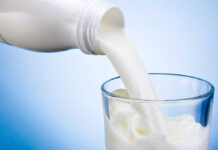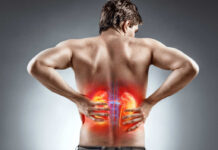
Teeth grinding (also known as bruxism) is most often caused by stress and anxiety, but it can also be brought on by obstructive sleep apnea, sleep paralysis, and snoring. You are also more likely to grind your teeth if you take a selective serotonin reuptake inhibitor (SSRI) type of antidepressant, smoke, drink alcohol or caffeine regularly, or take drugs such as ecstasy or cocaine. Let’s take a look at six long-term effects of bruxism.
1. Even flat, worn front teeth
If you often clench or grind your teeth, your teeth may begin to look like they have been filed down over time.
2. Nerve damage from microcracks and broken fillings
On average, natural wear and tear on an adult’s teeth lead to the loss of 0.3 millimeters of tooth enamel every ten years. Your tooth enamel protects your teeth and keeps them strong. Quickly losing enamel makes you susceptible to having your teeth flake or crack, which leads to damaged dental fixtures like crowns. If you do not have cracks repaired and broken crowns replaced, you can develop extreme nerve damage.
3. Teeth sensitivity
All of the extra wear and tear on your teeth that happens if you grind your teeth can damage tooth enamel to the point where the dentin is exposed. Dentin is the part of your teeth that lies beneath the enamel. Exposed dentin can cause you to be sensitive to hot or cold food or drinks.
4. Receding gums
One of the primary causes of gum recession is teeth grinding. Over time, as you grind your teeth, your gums form “pockets” that trap the types of bacteria that cause gum health issues such as receding gums and gum disease.
5. Loose teeth
If your teeth grinding is very severe, it can even detach your teeth from your jaw. This weakens the affected tooth or teeth, and they may fall out.
6. Frequent jaw pain and headaches
If you grind your teeth in your sleep, you may do this for as long as 40 minutes each hour, which can cause your teeth to bear up to 250 pounds of force per square inch. That is enough force to crack a nut out of its shell. It takes a toll on the muscles of your jaws, which can cause jaw pain and headaches because your muscles are tired and overworked.
You should consult your doctor or dentist about your teeth grinding, especially if you are unsure of the cause.


















